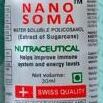In recent years, advancements in nanotechnology have paved the way for innovative solutions to longstanding challenges in various industries, from food and pharmaceuticals to cosmetics and personal care. One particularly promising development is the use of nanoemulsions—stable mixtures of oil and water at the nanoscale size—unlocking new potential for long-chain alcohols. This article explores the science behind nanoemulsions, their applications, benefits, and the future they hold for long-chain alcohols.
Understanding Nanoemulsions
At its core, a nanoemulsion is a thermodynamically stable dispersion of two immiscible liquids—usually oil and water—with droplet sizes typically in the range of 20 to 200 nanometers. Unlike traditional emulsions, nanoemulsions offer enhanced stability, lower viscosity, and improved bioavailability due to their increased surface area.
The creation of nanoemulsions often involves high-energy techniques such as microfluidization or ultrasonication, which break down larger droplets into nanosized ones. Additionally, surfactants or emulsifiers are employed to reduce interfacial tension and stabilize the emulsions against separation.
The Promise of Long-Chain Alcohols
Long-chain alcohols, which are composed of 12 or more carbon atoms, are vital components in various industrial applications, including surfactants, lubricants, and solvents. Traditional formulations of long-chain alcohols often face challenges such as poor solubility, lower stability, and environmental concerns regarding their biocompatibility and biodegradability.
Integrating long-chain alcohols into nanoemulsion systems can mitigate many of these issues. As food-grade surfactants and pharmaceutical formulations become increasingly important, the incorporation of long-chain alcohols into nanoemulsions provides a novel approach to enhance their performance while addressing environmental concerns.
Applications of Nanoemulsions in Long-Chain Alcohols
1. Pharmaceutical Delivery
In pharmaceuticals, the bioavailability of drugs is a critical factor influencing their efficacy. Long-chain alcohols play essential roles in drug formulations, but their solubility can hinder therapeutic effectiveness. Nanoemulsions can encapsulate these compounds, enhancing their absorption rates and optimizing their pharmacokinetic profiles. This is particularly beneficial for hydrophobic compounds, allowing patients to reap their benefits more effectively and with fewer side effects.
2. Cosmetic and Personal Care Products
In the cosmetics industry, consumer demand for products that provide hydration, skin penetration, and improved texture is ever-growing. Nanoemulsions involving long-chain alcohols can enhance the absorption and delivery of active ingredients in topical formulations, leading to better hydration and skin health. Additionally, they can offer improved stability and extended shelf life for creams, lotions, and serums, appealing to both manufacturers and consumers.
3. Food and Beverage Industry
In the food industry, long-chain alcohols can act as flavor enhancers or preservatives. Nanoemulsification allows for the creation of stable flavor systems that improve taste and odor while decreasing the need for artificial additives. This technology can lead to healthier product formulations, aligning with the growing trend towards clean label and natural ingredients.
4. Agricultural Applications
Long-chain alcohols can also be utilized in agrochemical formulations, specifically in pesticides and fertilizers. Nanoemulsions can enhance the delivery of these agents to plant surfaces, improving their efficacy and reducing the amount needed. This not only benefits crop yields but also addresses environmental concerns regarding excessive chemical usage.
The Benefits of Nanoemulsions
The advantages of utilizing nanoemulsions with long-chain alcohols are manifold:
- Enhanced Solubility and Bioavailability: Nanoemulsions improve the solubility of long-chain alcohols in various mediums, fostering their effectiveness across industries.
- Increased Stability: Nanoemulsions are inherently more stable, reducing the likelihood of separation and prolonging product shelf life.
- Reduced Toxicity: Employing nanoemulsion technology can result in lower concentrations of active ingredients needed, minimizing environmental and human toxicity.
- Customizable Properties: The ability to adjust droplet size, surfactant composition, and formulation offers flexibility in designing products tailored to specific applications.
Conclusion: A Bright Future Ahead
The fusion of nanoemulsion technology and long-chain alcohols represents a remarkable advancement poised to reshape numerous industries. As research continues to unlock the full potential of this innovative approach, we can expect to see improved product formulations, enhanced efficacy, and a greater emphasis on sustainability.
Moving forward, embracing nanoemulsions will not only enhance the applicability of long-chain alcohols but also lead to smarter, more effective solutions that align with contemporary consumer and environmental demands. The future may very well be anchored in nanotechnology, and for long-chain alcohols, that future looks promising.
